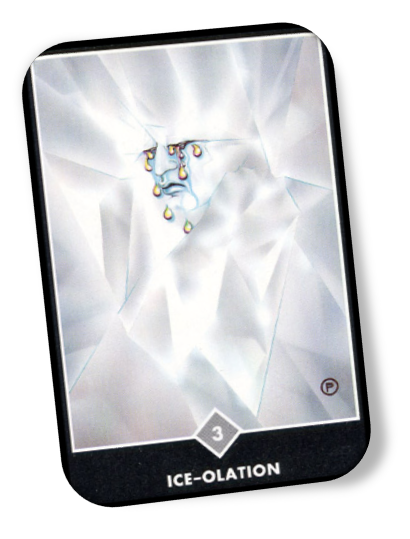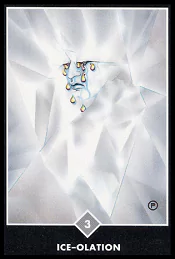Three Of Clouds – Osho Zen Tarot Deck
I. The Explanation of Three of Clouds Osho Zen Tarot
In our society, men are often taught not to cry, to keep a strong facial expression on things when they get hurt, and not show that they are in pain. But women can also fall into this situation, and we all at some point realize that the only way to survive is to get rid of all our emotions so we don’t get hurt again. If our pain is too deep, we tend to hide it from ourselves.
This makes us frozen, harsh because deep down we know that just a small crack in the ice is enough to free the hurt to start circulating through us again. The rainbow-colored tears on this person’s face hold the key to breaking out of this ‘ice-olation’. Tears, and only the tears, hold the power to melt the ice. It’s okay when we cry, and there’s no reason to be ashamed of those tears. Crying helps us to let go of pain, allow us to be softer to ourselves, and ultimately heal our wounds.

II. The Energy of Three of Clouds Osho Zen Tarot Based on Osho’s Teachings
We are miserable because we are too much in the self. What does it mean when I say we are too much in the self? And what exactly happens when we are too much in the self? Either you can be in existence or you can be in the self – both are not possible together.
- To be in the self means to be apart, to be separate. To be in the self means to become an island;
- To be in the self means to draw a boundary line around you;
- To be in the self means to make a distinction between ‘this I am’ and ‘that I am not’.
The definition, the boundary, between “I” and “not I” is what the self is – the self isolates.
Three of Clouds Osho Zen Tarot makes you frozen – you are no longer flowing. If you are flowing the self cannot exist. Hence people have become almost like ice-cubes. They don’t have any warmth, they don’t have any love – love is warmth and they are afraid of love. If warmth comes to them they will start melting and the boundaries will disappear. In love the boundaries disappear; in joy also the boundaries disappear because joy is not cold.
Source: Osho Zen: The Path of Paradox, Volume 1 Chapter 5

